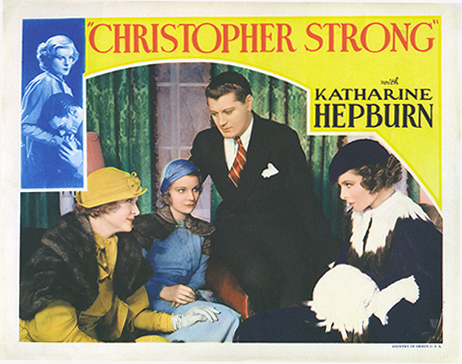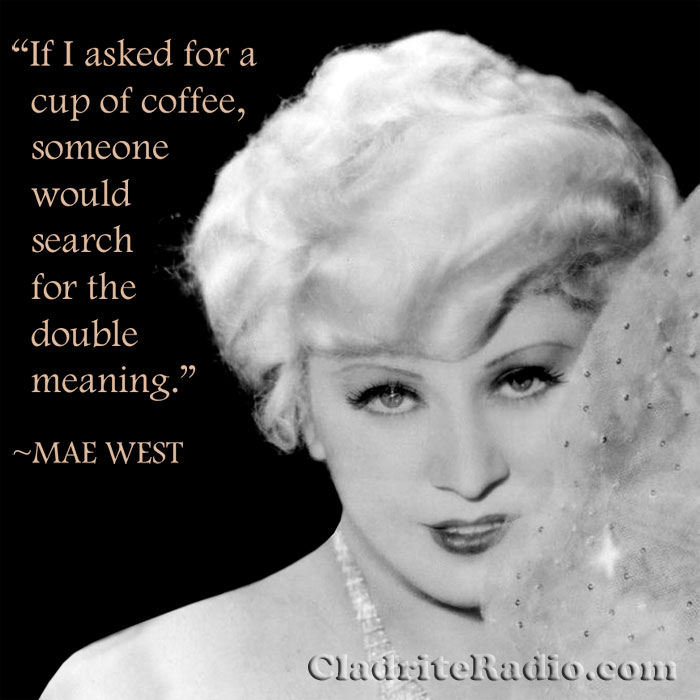Here are 10 things you should know about Frankie Darro, born 103 years ago today. The 1920s and ’30s were the prime of his career, but he was the rare child star who acted for the rest of his life.
Tag: precode movies
10 Things You Should Know About Helen Vinson
Here are 10 things you should know about Helen Vinson, born 113 years ago today. Her Hollywood career was relatively brief—she appeared in just over three dozen movies—but memorable.
Dizzy Dialogue in ‘Christopher Strong’
While watching Christopher Strong (1933) recently, we were struck by one perplexing line of dialogue. First, some context…
 In the movie, Colin Clive plays the title character, a member of Parliament who prides himself on his love for and commitment to his wife of many years (played by Billie Burke, who was, it’s interesting to note, nearly 16 years older than Clive). Their daughter, Monica (played by Helen Chandler, who was just six years younger than Clive—quite a trick, that), is a thrill-seeker who, as the movie opens, is involved with Harry Rawlinson (Ralph Forbes), an unhappily married man.
In the movie, Colin Clive plays the title character, a member of Parliament who prides himself on his love for and commitment to his wife of many years (played by Billie Burke, who was, it’s interesting to note, nearly 16 years older than Clive). Their daughter, Monica (played by Helen Chandler, who was just six years younger than Clive—quite a trick, that), is a thrill-seeker who, as the movie opens, is involved with Harry Rawlinson (Ralph Forbes), an unhappily married man.
Katharine Hepburn plays Lady Cynthia Darrington, a world-renown aviatrix, in the picture, which was just her second movie. We’ll get back to her.
Rawlinson eventually divorces his wife and weds Monica. Sir Strong and Lady Strong initially oppose Monica’s marriage to a man she was having an adulterous affair with, but when she announces that she’s pregnant, they are persuaded to accept the union and be happy for Monica and Harry.
But here’s the point of this post: During a scene at a restaurant, where Monica and Harry have just revealed to Lady Strong that they are expecting, in walks Lady Darrington—who, as it happens, is having an affair with Sir Strong (we know, we know) and is, unbeknownst to him, also pregnant.
A woman of her acquaintance approaches Lady Darrington to share Monica and Harry’s news of a coming blessed event, and in sharing this news with her, the woman says something along the lines of, “They don’t yet know whether it’s a girl or a boy.”
And that left us scratching our heads: Monica and Harry have just learned they’re pregnant, and it’s 1933. Of course they don’t know if it’s a boy or a girl, right? We almost expected Lady Darrington to do a double-take and say, “Of course they don’t know if it’s a boy or girl—how could they?”
So why was that line in the picture?
We wondered if perhaps we just weren’t up to speed on the state of obstetrics in the early 1930s, so we checked with our favorite ob-gyn, Dr. Mary Kirk, and asked her if there were, at that time, accurate scientific methods of determining the sex of an unborn child that we were simply unaware of.
“In the 1930s, you would find out the sex in the delivery room,” said Dr. Kirk. “There were all kinds of old wives’ tales, but nothing reliable. Ultrasound was not even very accurate or consistent until the 1970s, and only then much later in a pregnancy.”
In short, Dr. Kirk agreed that the line of dialogue was very odd, indeed. So the mystery of why it was included remains…
Happy 123rd Birthday, Mae West!
Actress, singer, playwright, screenwriter, comedian and sex symbol Mae West was born Mary Jane West 123 years ago today in Bushwick, Brooklyn. Here are 10 MW Did-You-Knows:
Happy birthday, Mae West, wherever you may be!

